Have you ever wondered how a water filter works? It removes impurities through mechanical, activated carbon, reverse osmosis, and ion exchange filtration. This article breaks down each process, showing how they make water safe to drink.
Key Takeaways
- Water filters are essential for improving taste, odor, and overall purity by removing various sediments, chemicals, and biological contaminants, thereby ensuring safe and pleasing drinking water.
- The filtration process involves multiple stages, including mechanical filtration, activated carbon filtration, ion exchange, and reverse osmosis, each targeting different types of impurities to provide comprehensive water treatment.
- Choosing the right water filter entails understanding specific water supply needs, considering NSF certifications, and evaluating the costs and benefits, while regular maintenance ensures the continued efficacy and longevity of the system.
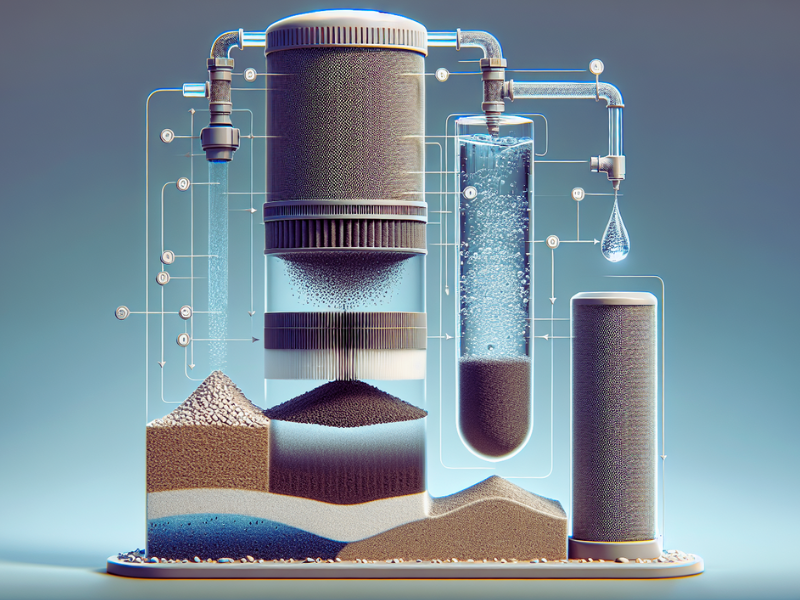
What is a Water Filter?
At its simplest a water filter is more than just a physical barrier; it’s a water quality protector. Whether it’s a cartridge, device, or a whole system a water filter removes unwanted sediment, chemicals, and biological contaminants. The search for clean water is not just about looks but about health and safety. By trapping or blocking debris and sometimes even bacteria filters turn tap water into a source of wellness.
The magic of water filters is in their ability to improve taste, odor, and overall purity of water. They’re designed to remove various impurities from visible silt and sand to microscopic bacteria and heavy metals that can affect water quality. As the protectors of your drinking water, these filters ensure every glass you pour is not only safe but also good to drink.
The Filtration Process
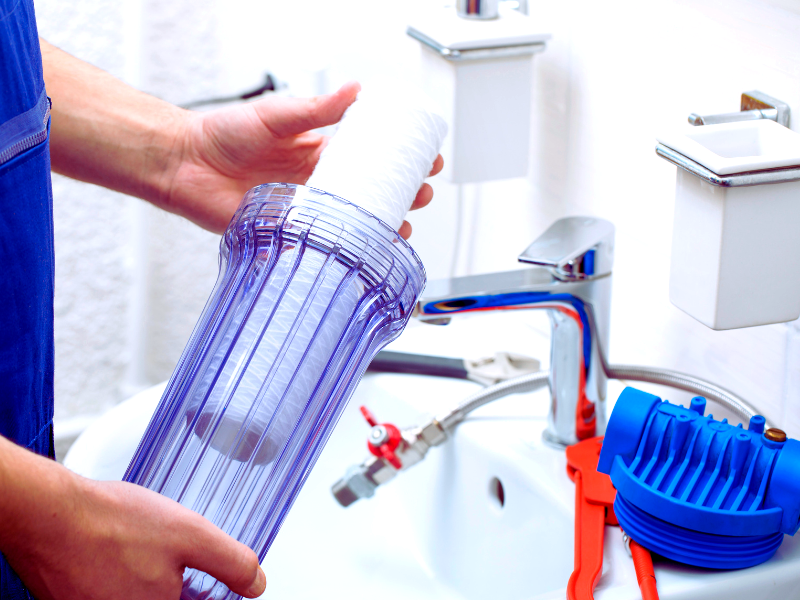
Let’s dive into the filtration process and see the science and engineering at work to make the water we drink clean. As water flows through the system the process involves both physical and chemical methods, each targeting different types of impurities. From sediment to bacteria and chemical reactions to adsorption, every step in this process is designed to remove specific contaminants as water goes through various stages.
The filtration systems often have multiple stages to remove a wide range of contaminants so you get comprehensive water treatment. Imagine water flowing through various layers each designed to catch different materials and you get purified water free from taste, odor, and harmful substances. This multi-stage approach not only refines the water but also your trust in every drop you drink.
Mechanical Filtration
The first layer of defense in many filtration processes is mechanical filtration. This method relies on a barrier to physically intercept sediments and particles as water courses through it. From the large debris captured by mesh filters to the fine particles snagged by the complex pore structures of ceramic filters, mechanical filtration ensures the clarity and cleanliness of the water.
Consider mechanical filters as the bouncers at the club door, only allowing the purest water to pass through. They come in various forms, each with a specific micron rating that denotes their effectiveness in trapping different sizes of particles. This ensures that anything from rust particles to minute sediments is kept out of your drinking water, leaving it free from visible impurities. Some common types of mechanical filters include:
- Sediment filters
- Carbon filters
- Ceramic filters
- Reverse osmosis filters
By using these filters, you can ensure that your drinking water is clean and safe to consume, as filters work effectively to remove contaminated water.
Activated Carbon Filtration
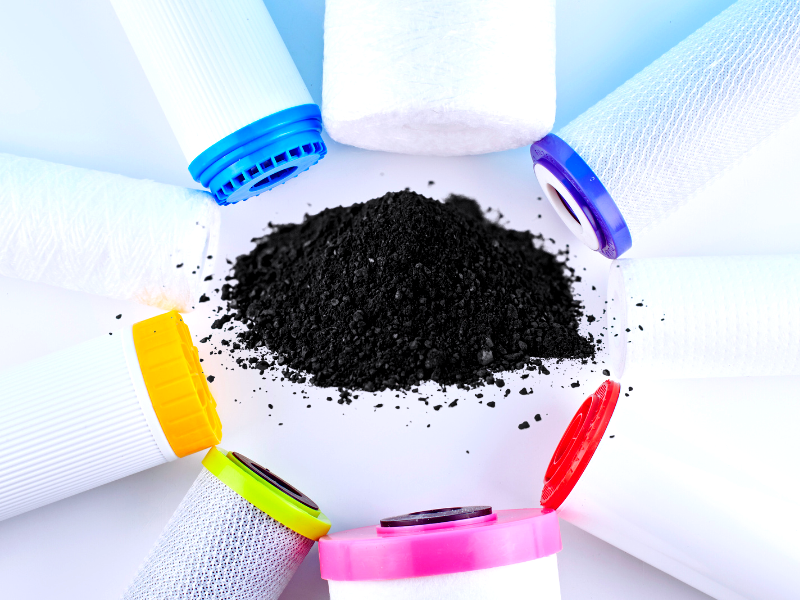
Activated carbon filtration operates on the principle of adsorption, a process where a vast network of tiny pores on the carbon surface captures contaminants. This method is particularly adept at reducing chlorine and volatile organic compounds (VOCs), improving the water's safety and its taste and odor.
Activated carbon filters, including the single activated carbon filter, can handle an impressive array of contaminants, from mercury to pesticides, making them versatile players in the filtration lineup. They are the silent heroes, often unseen, who work tirelessly to absorb unwanted chemicals, ensuring that every sip of water is crisp and clean.
Ion Exchange Filtration
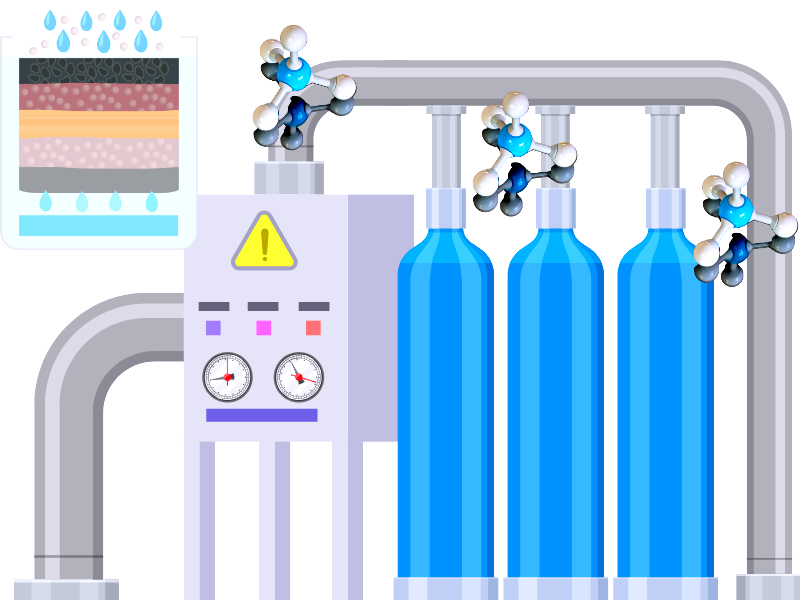
Ion exchange filtration is akin to a trade agreement where hard minerals in the water, such as magnesium and calcium, are swapped for sodium or hydrogen ions. This exchange softens the water, reducing limescale and making it more suitable for appliance consumption and use.
The ion exchange resin, typically tiny beads within the filter, is the medium where this exchange occurs. Removing the hard minerals prevents the buildup that can damage plumbing and appliances, thus ensuring a smoother operation and a longer lifespan for household items.
Reverse Osmosis Filtration
Reverse osmosis filtration is like a tightly guarded checkpoint, where water is forced under pressure through a semipermeable membrane. This membrane acts as a selective barrier, allowing only water molecules to pass while leaving contaminants stranded. The result is purified water, free from dissolved solids and various other impurities that can be detrimental to health.
In a reverse osmosis system, a series of pre-filters, including sediment and carbon filters, prepare the water before it reaches the RO membrane, ensuring maximum efficiency and protection against a wide array of contaminants. This filtration process is thorough, with the ability to remove substances like fluoride and arsenic, making it one of the most effective methods available.
Types of Water Filters
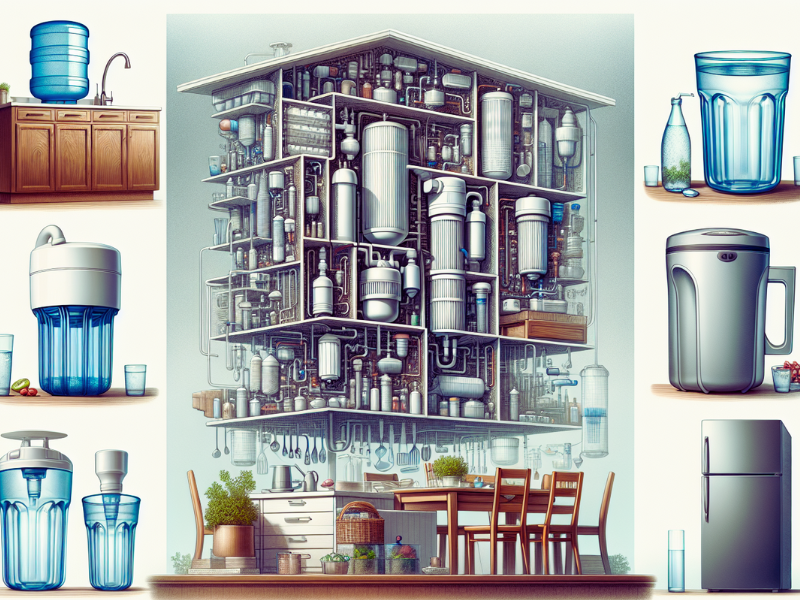
The types of water filters available are as diverse as the needs they meet. From the comprehensive whole-house systems to the portable water filter pitchers, each type offers unique benefits and caters to different aspects of water filtration. As we explore the various systems, it becomes clear that there is a tailored solution for every concern, whether it’s for the entire water supply or just a single tap.
Understanding the different types of water filters is crucial for making an informed decision about which system is right for your home. Whether you’re dealing with hard water, looking to improve taste, or aiming to eliminate specific contaminants, there’s a water filter designed to meet those specific challenges.
Whole House Water Filter Systems
Whole home water filter systems provide a comprehensive solution, ensuring every drop of water throughout your home is clean and safe. Installed at the main water line, these systems act as gatekeepers for your home’s water supply, filtering out contaminants before they reach any faucet or appliance. This significantly improves water quality for drinking, cooking, and bathing.
Additionally, whole house systems protect your appliances and plumbing from the wear and tear caused by heavy metals and sediments. Optional UV filters can be included to ensure that your water is free from viruses and bacteria, offering extra protection for your household.
Under Sink Filters
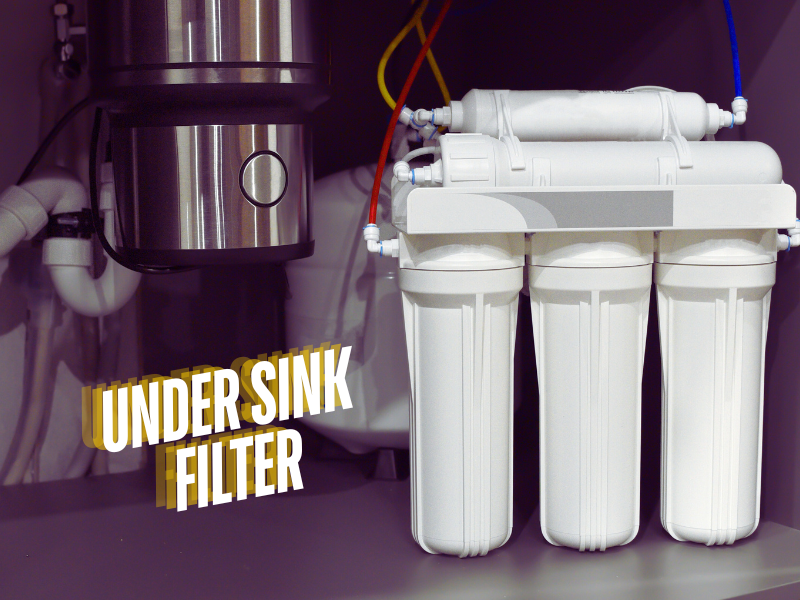
Under-sink filters are the targeted specialists, focusing their filtration efforts on the water you consume directly from the tap. These systems are typically easy to install and immediately upgrade the quality of your drinking and cooking water. While out of sight, the impact of under-sink filters is tangible in every glass of water they purify. Their convenience and cost-effectiveness make them appealing to those looking to improve water quality without a large-scale installation.
Water Filter Pitchers
Water filter pitchers are the epitome of simplicity and portability in water filtration. They allow you to filter water directly, providing an accessible and uncomplicated way to enjoy clean water at home, in the office, or even on the go.
Refrigerator Water Filters
Refrigerator water filters ensure that the water and ice dispensed from your fridge are as pure and refreshing as possible. By integrating filtration into the appliance, these filters conveniently maintain water quality without additional effort.
Benefits of Using Water Filters

The benefits of using water filters extend far beyond mere aesthetics. By eliminating contaminants, filters not only improve the taste and smell of water but also contribute to your overall health by:
- Retaining beneficial minerals
- Removing impurities that can cause harm over time
- Playing a critical role in cancer prevention
- Promoting skin hydration
Moreover, a filtration system can be a boon for your home’s appliances and plumbing. By filtering out sediments and harmful minerals, these systems prevent the buildup that leads to wear and tear, extending the appliances' lifespan and reducing plumbing issues.
Choosing the Right Water Filter
Selecting the right water filter for your home can be daunting, but it begins with understanding the specific needs of your water supply. A professional water test can reveal contaminants and guide you toward a system that offers targeted filtration.
Consider the NSF certification as a seal of quality when evaluating filters. It’s vital to check the list of contaminants each filter can reduce and weigh the costs, including initial purchase, installation, and ongoing maintenance, against your budget and filtration needs.
Cost of Water Filtration Systems

Investing in a water filtration system significantly impacts your health and wallet. While the cost varies based on the system type and location, with whole-house reverse osmosis systems being pricier options, the long-term benefits often outweigh these initial expenses. Clean, filtered water improves taste and odor, removes harmful contaminants like lead, chlorine, and bacteria, and reduces the need to purchase bottled water, reducing plastic waste.
Moreover, a water filtration system offers substantial cost savings over time compared to the ongoing expense of bottled water. These factors—enhanced water quality, health benefits, environmental impact, and financial savings—are crucial considerations when deciding whether to invest in a water filtration system for your home.
Common Contaminants Removed by Water Filters
Water filters serve as a shield against a plethora of contaminants that can find their way into our drinking water. They efficiently remove heavy metals like lead and mercury, neutralize the taste and smell of chlorine, and filter out pesticides that can leach into water supplies.
Moreover, filters are capable of extracting bacteria and nitrates, ensuring that the water you drink is not just clean in appearance but also content. This removal of various contaminants showcases the critical role water filters play in providing safe and healthy drinking water.
How to Maintain Your Water Filter
The efficacy and longevity of your water filter are directly tied to regular maintenance. For whole house systems, an annual inspection by a professional is recommended, along with routine checks and replacements of the filter components to ensure that your water remains high quality.
Environmental Impact of Water Filters
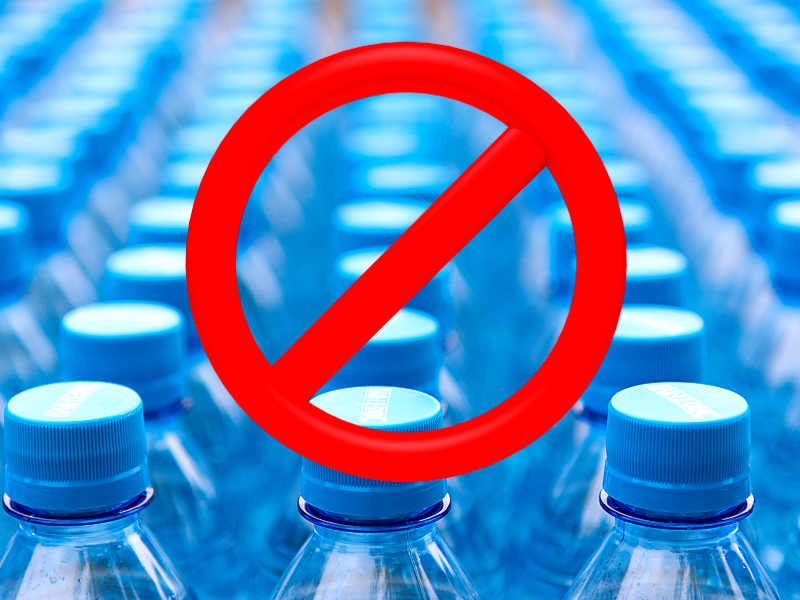
Water filters not only safeguard your health but also protect the planet. By reducing the necessity for bottled water, filters significantly cut down on plastic waste and the fossil fuels used in plastic production. Furthermore, eco-friendly water filter options are available that utilize reusable casings and recyclable parts, contributing to a sustainable future while providing clean water without the environmental toll of plastic bottles.
Summary
In summary, water filters are a must-have in ensuring our drinking water is pure and tastes good. With different types and filtration methods available, there’s a solution for every need and home. By understanding the process, benefits, and maintenance of water filters we can take big steps towards healthier living and environmental sustainability. Let this guide you to make an informed decision about your water quality and be motivated to experience the clear difference a water filter can bring to your life.
FAQs
What are the main types of water filters available?
The main types of water filters available are mechanical, activated carbon, ion exchange, reverse osmosis, and ultraviolet (UV) filtration systems, each designed to remove different contaminants and improve water quality.
How often should I maintain my water filter system?
You should have a professional inspection annually for whole house systems and follow the manufacturer's guidelines for replacing filter components to maintain optimal performance. Regular maintenance will help ensure the system functions effectively and efficiently.
Can water filters remove heavy metals like lead and mercury?
Yes, water filters can effectively remove heavy metals like lead and mercury, along with other contaminants, to provide safe drinking water.








